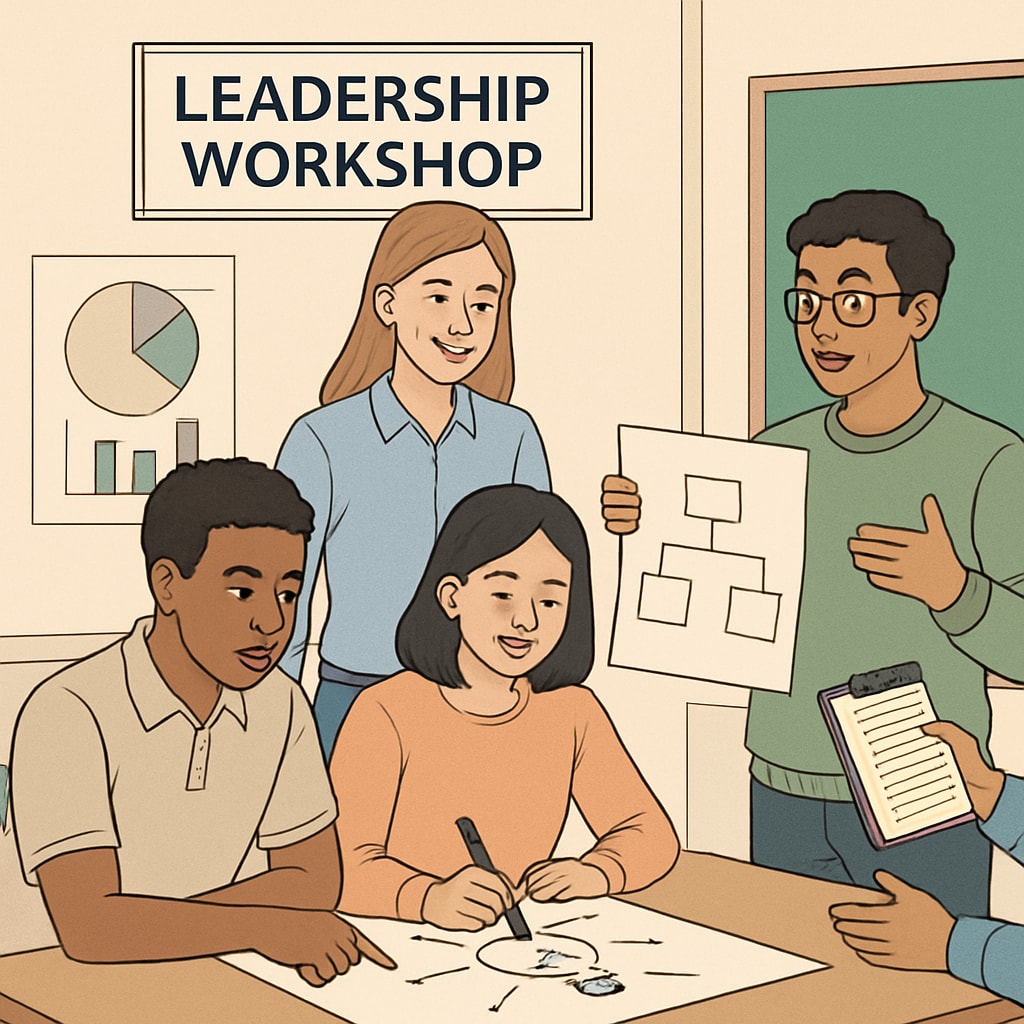In today’s rapidly evolving world, leadership has become an indispensable skill. While traditional education often focuses on academic knowledge, K12 education must aim higher—to nurture future leaders who are resilient, empathetic, and innovative. Drawing inspiration from figures like Sadhguru, the wisdom of successful female entrepreneurs, and the power of communication exercises, educators can redefine the way leadership is fostered in schools.

Why Leadership Development Matters in K12 Education
The foundation of leadership begins early. Research shows that children who develop leadership skills in their formative years grow into more confident, decisive, and socially responsible adults. In the context of K12 education, fostering qualities such as problem-solving, teamwork, and creativity equips students to navigate the complexities of the modern world.
Take, for example, the teachings of Sadhguru, an Indian yogi and thought leader. His emphasis on self-awareness and resilience aligns perfectly with the skills young leaders need. Sadhguru’s philosophy encourages individuals to embrace challenges and foster a mindset of growth—essential traits for any leader. Educators can integrate similar principles into classroom activities, such as mindfulness exercises or storytelling sessions that highlight perseverance.
Lessons from Female Entrepreneurs: Resilience and Innovation
The stories of female entrepreneurs offer another valuable perspective on leadership. Figures like Sara Blakely, the founder of Spanx, or Malala Yousafzai, a global advocate for education, demonstrate the importance of resilience and innovation. By sharing these stories in K12 classrooms, teachers can inspire both boys and girls to think critically and act boldly.
One effective approach is to create project-based learning opportunities where students can emulate entrepreneurial thinking. For example, a “business fair” where students develop and pitch their own ideas can help them practice creativity, teamwork, and critical thinking. These activities not only build leadership skills but also highlight the contributions of women in shaping the world.

Enhancing Leadership Through Communication Exercises
Communication is the cornerstone of effective leadership. Activities designed to improve communication, such as role-playing, group discussions, and public speaking, are crucial in helping students articulate their ideas clearly and confidently. For instance, a debate club or storytelling workshop can significantly enhance students’ ability to engage with diverse perspectives.
Additionally, communication exercises can be tailored to include empathy-building. Role-playing scenarios where students must view situations from different cultural, social, or emotional standpoints can foster deeper understanding and inclusivity. This, in turn, helps cultivate leaders who are not just effective communicators but also compassionate individuals.
A Holistic Approach to Leadership in K12 Education
To create a comprehensive leadership development program, K12 schools must integrate these elements into their curriculum. A well-rounded approach could include:
- Mindfulness Training: Drawing on concepts from Sadhguru to build resilience and self-awareness.
- Inspirational Case Studies: Highlighting the achievements of female entrepreneurs to motivate students.
- Skill-Based Workshops: Communication exercises that enhance public speaking, negotiation, and empathy.
- Project-Based Learning: Opportunities like business fairs and community service projects to apply leadership in real-world contexts.
These initiatives, when implemented consistently, can transform K12 education into a breeding ground for tomorrow’s leaders. As a result, students will not only excel academically but also develop the skills needed to lead with integrity, creativity, and empathy.
In conclusion, leadership development in K12 education is not just an option—it’s a necessity. By incorporating the insights of visionaries like Sadhguru, the courage of female entrepreneurs, and the transformative power of communication exercises, educators can empower students to become the trailblazers of tomorrow.
For more ideas on leadership and personal development, explore resources like Leadership on Wikipedia or Leadership on Britannica.


